Sunday, 21st May 2023
| Walk: | King's Cave, The Doon, Blackwaterfoot, Corriecravie, Sliddery, Lagg | ||
| Start Point: | King's Cave car park | Grid Reference: | NR 897 314 |
| Distance: | 11.3 miles | Ascent: | 793 feet |
| Time: | 6 hours | ||
| Weather: | Mainly overcast | ||
| Comments: | The walk to Blackwaterfoot was very pleasant with lots of interesting features on the way. From there the initial route was easily accessible but The Arran Coastal Way Book describes the route after Kilpatrick Point: 'There's a tortuous path through the vegetation, with the occasional waymarker to reassure you that you are still on course. Using a mixture of rock-hopping and path-finding pass round one headland after another.' This continued for approximately 3 miles and we were glad to take the inland option once we reached the signpost from which a steep climb took us up to the road. A 4 mile walk then took us to Lagg where the taxi picked us up. On reaching the guest house we were amazed that the dining room, where we had already booked a meal, was shut down and there was nowhere else to eat in Whiting Bay. Fortunately a kind couple invited us to travel with them to Lamlash where they were going for dinner. |
||
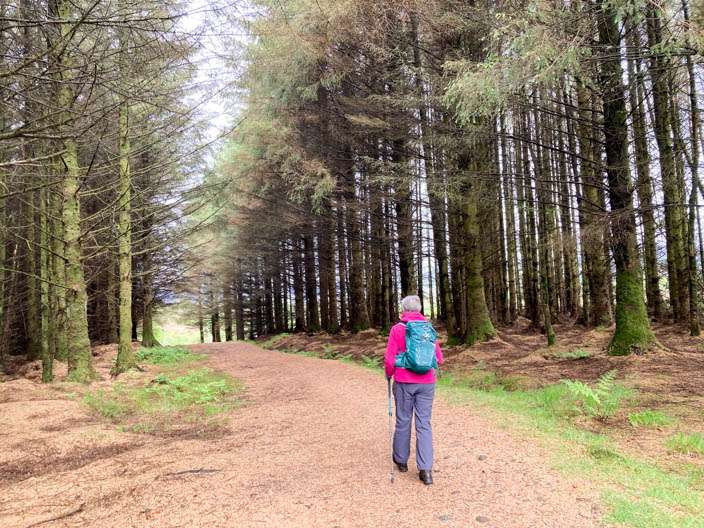
Setting out from the car park . . .

we can see back along the coast . . .

and soon meet a rocky section . . .

before we see the first cave . . .
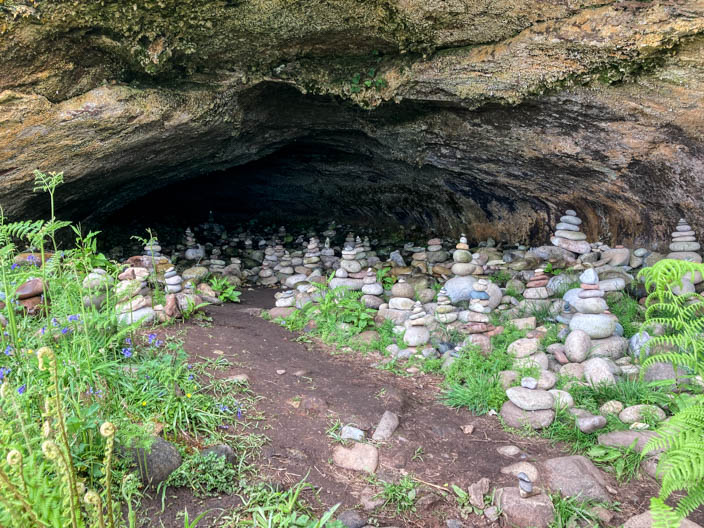
filled with little pyramids
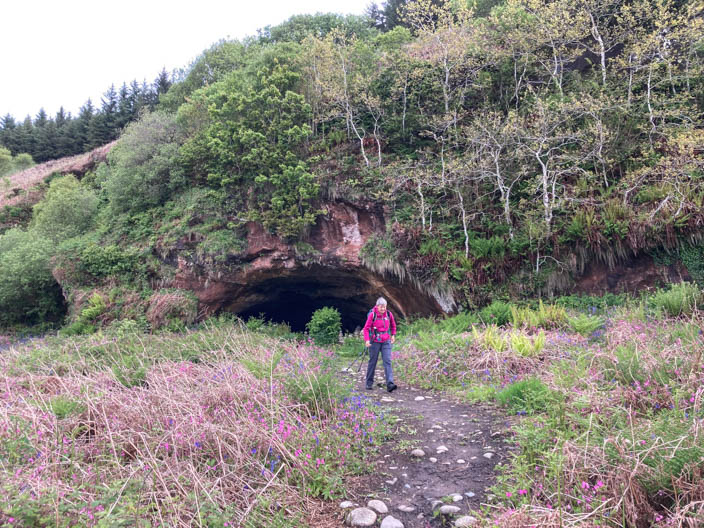
Moving further along . . .
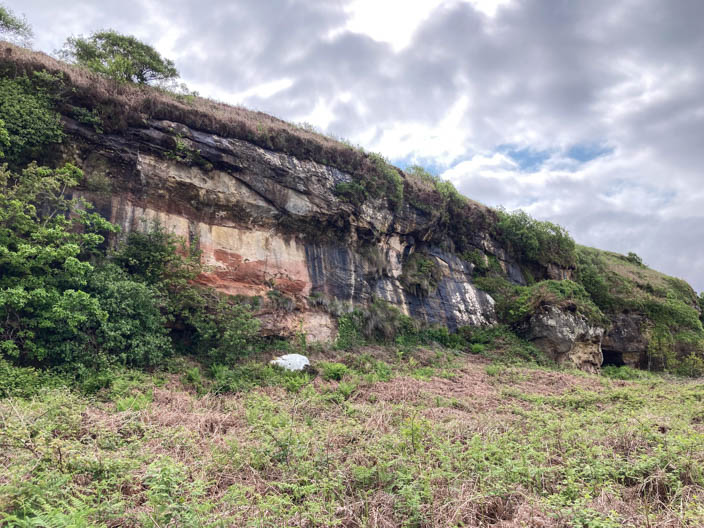
we pass a colourful cliff . . .
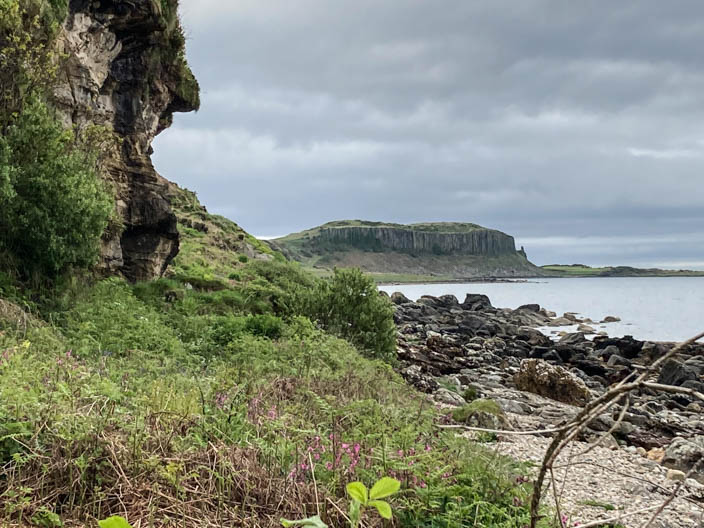
and get our first glimpse of Doon
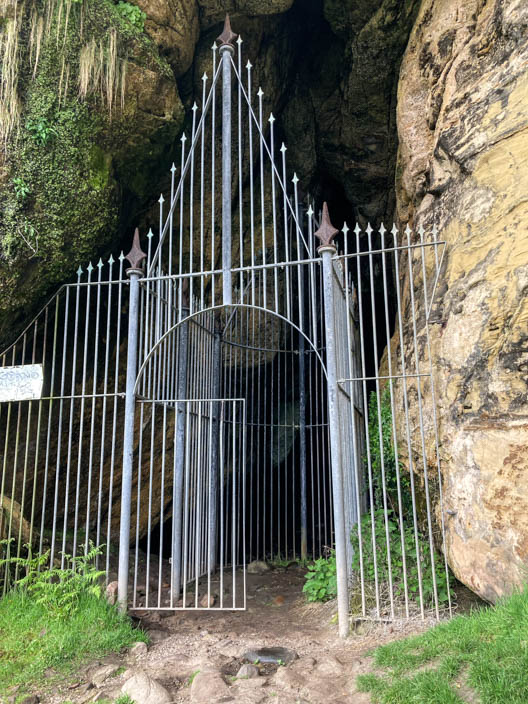
King's Cave . . .

dwarfs me

The cave is alleged to have been used in 1307 . . .

by Robert the Bruce . . .

en route from Ireland to the Scottish mainland

The cave is of great interest for its ancient rock carvings . . .

some dating from the Iron Age and possibly even Bronze Age

Leaving King's Cave a tunnel . . .
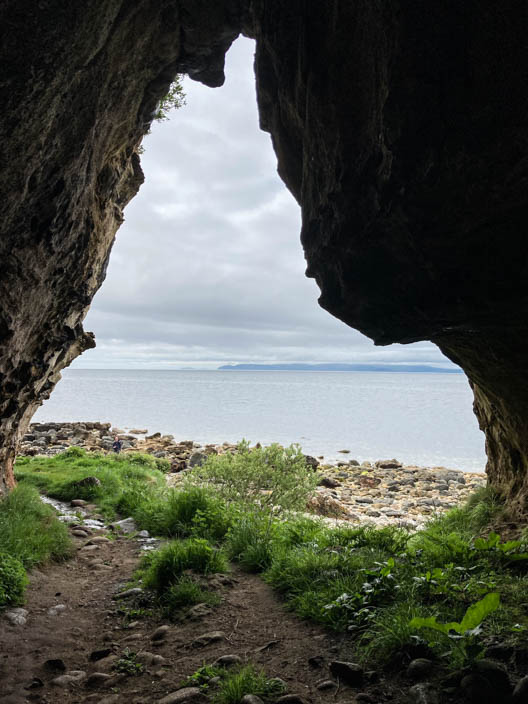
leads back to the shore . . .
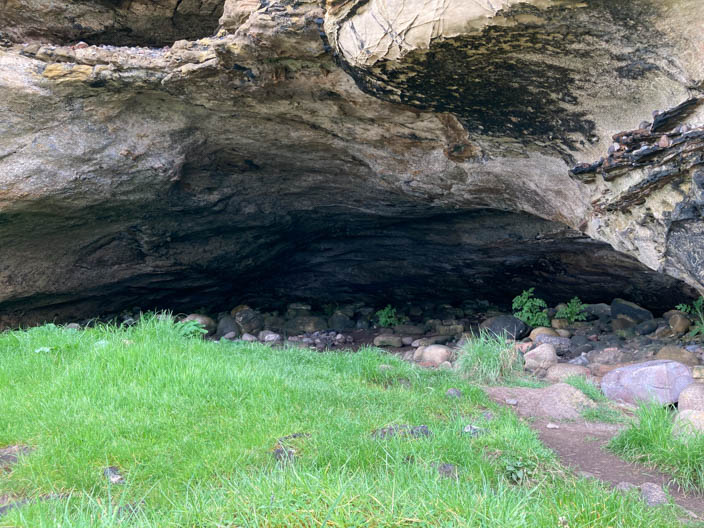
where we pass more caves . .
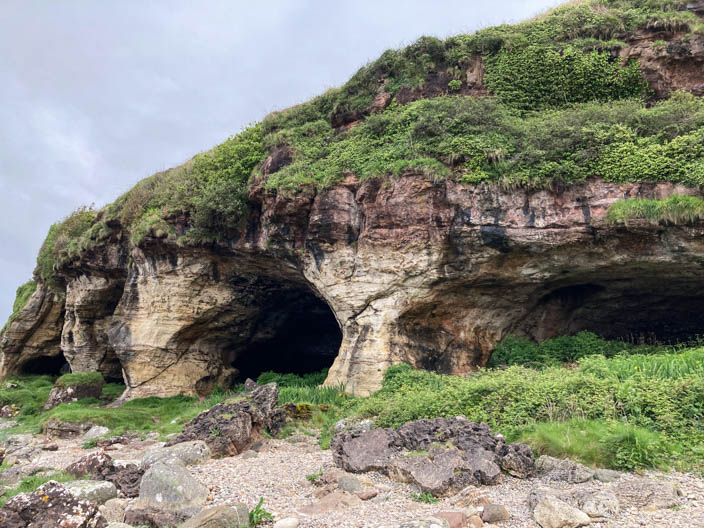
but too many to explore
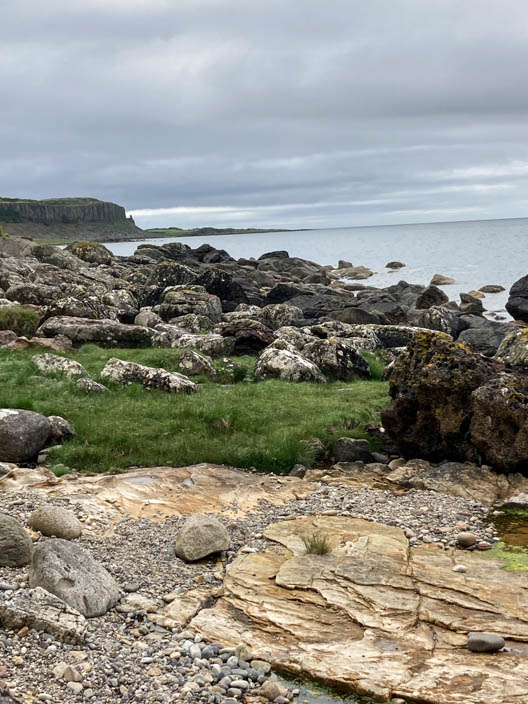
A boulder section . . .
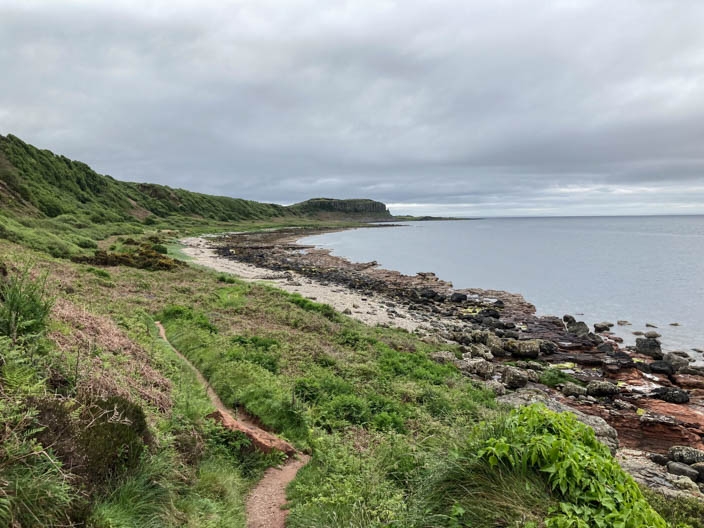
leads along the shore . . .
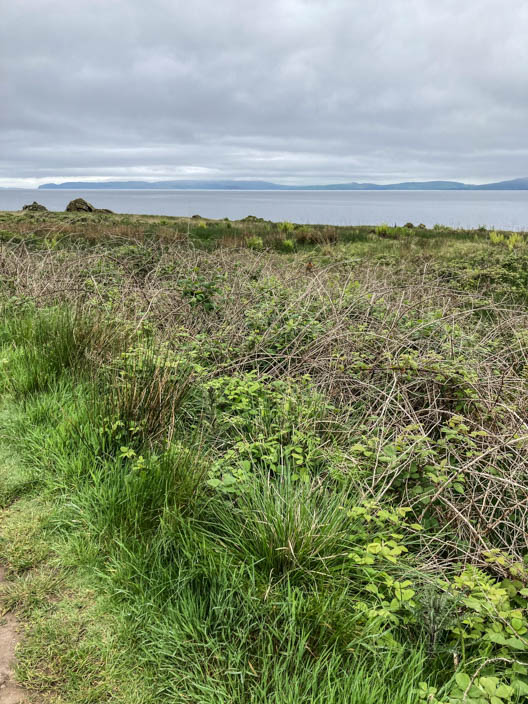
to a more grassy track . . .
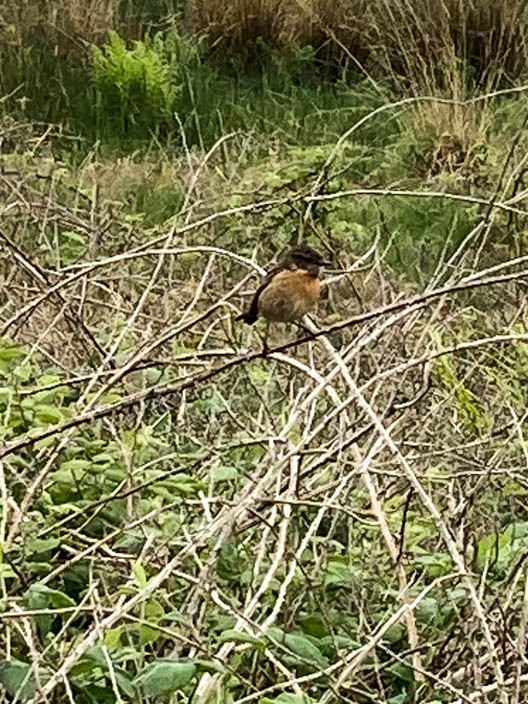
where a chaffinch poses for us

The cliffs on which Doon (or Drumadoon) Fort is perched . . .
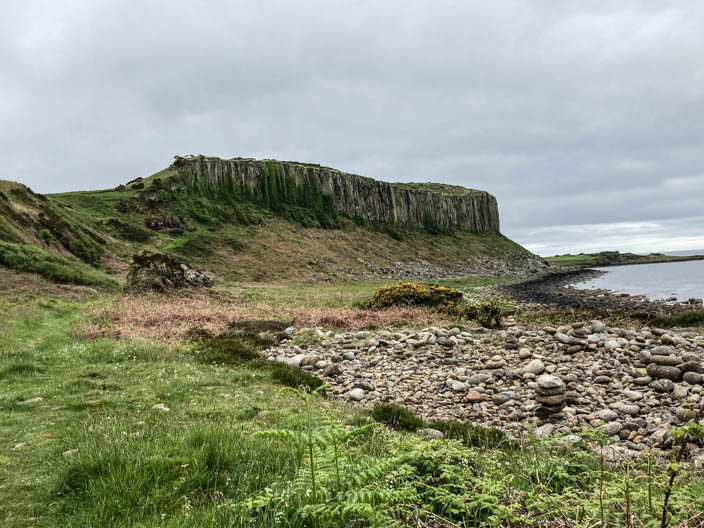
look increasingly dramatic as you approach
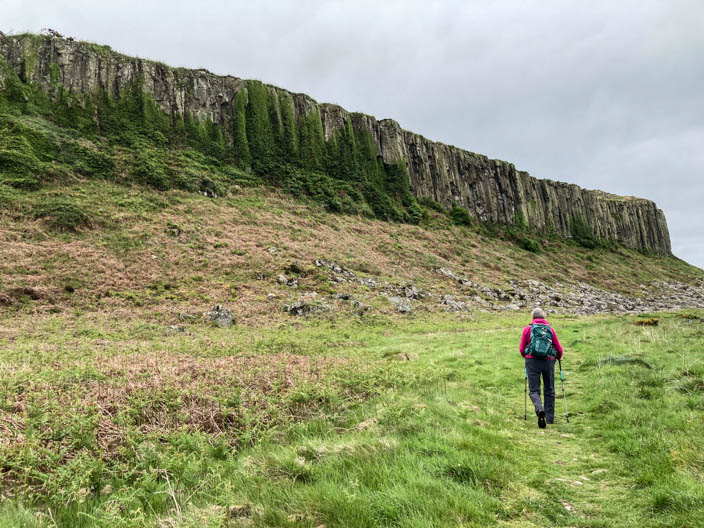
They are about 60 million years old and are known as a great example of Tertiary Sill

A path takes us across the boulders . . .
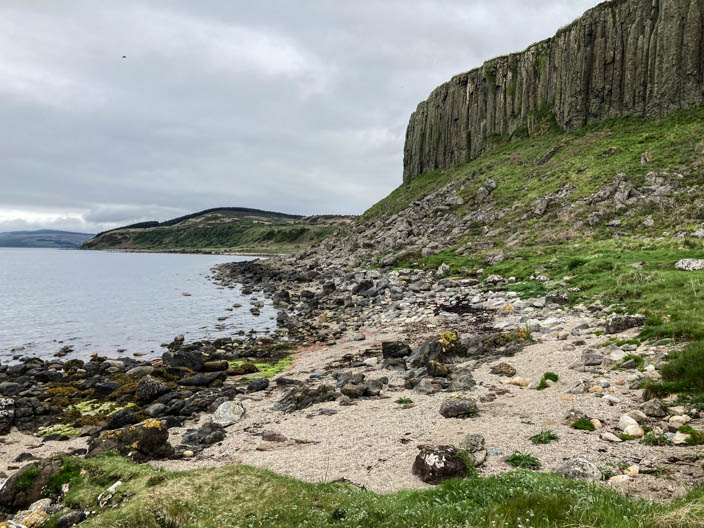
at the foot of the cliffs . . .

and round the edge of the golf course
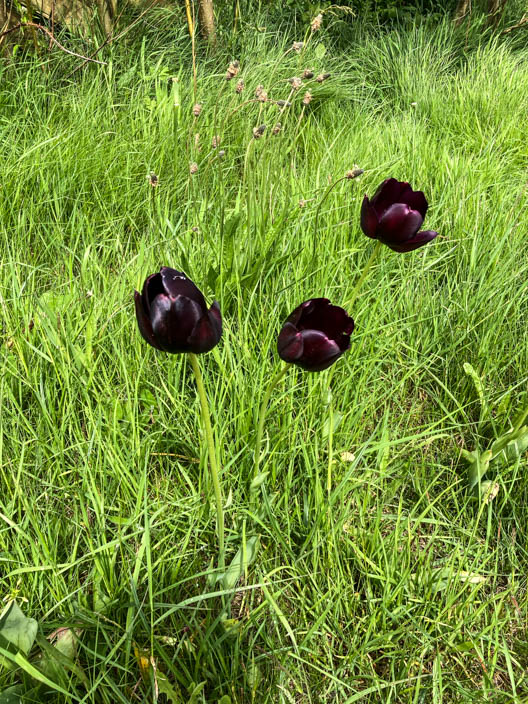
On the road section the highlight is . . .
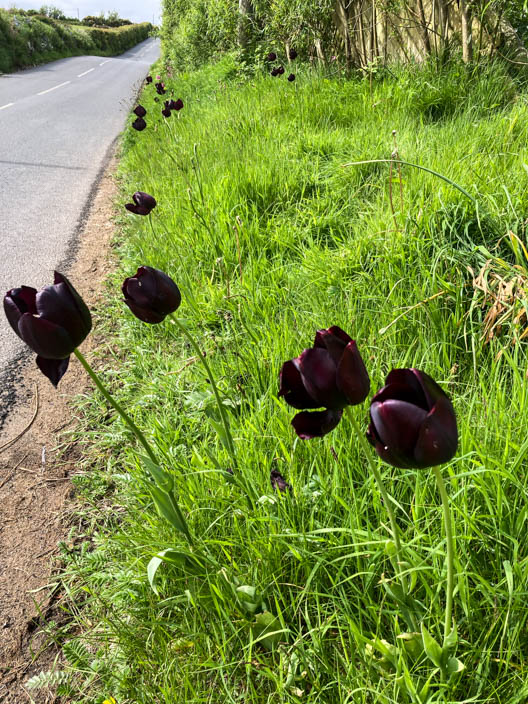
a group of black tulips.